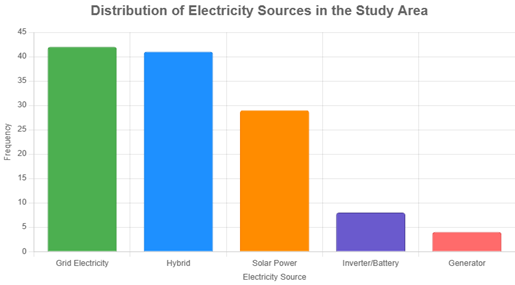ANALYSES OF THE EFFECT OF ELECTRICITY AVAILABILITY ON RENTAL VALUES IN BAUCHI METROPOLIS
Keywords:
Electricity, Availability, Reliability, Rental Value, Residential PropertiesAbstract
Access to reliable electricity is not only essential for basic household functions, such as lighting, heating, and powering appliances, but it also enhances the overall livability and attractiveness of residential properties. Therefore, this study aims to fill this gap empirically, by investigating how electricity availability and reliability on residential property affects rental values in Bauchi. The study adopted the quantitative research design and used appropriate procedure to obtained the data from 124 respondents through a structured questionnaire administration. The findings indicated that; the electricity supply is neither consistently reliable nor severely unreliable; highly reliable electricity is rare in the study area, likely limited to well-developed areas probably GRA considering the low density nature of the residence; correlation coefficient of 0.977 indicates a near-perfect linear relationship between residential property rental value and electricity availability, the significance level (p = 0.000) confirms this relationship is statistically significant; and the results further indicates that approximately 95.5% of the variance in rental value is explained by electricity availability and reliability, which aligns with the Pearson correlation (r = 0.977, since r² = 0.977² ≈ 0.954, nearly matching the R² from ANOVA). The study concluded that available and reliable energy supply significantly influences rental value and housing choices. Therefore, the study recommends that Estate Surveyors and Valuers should incorporate electricity availability and reliability in their valuations because the strong correlation between electricity availability and residential property rental value.

Published
How to Cite
Issue
Section
Copyright (c) 2025 Ethel Asinya Mendie, Sani Adamu, Ayuba Bitrus, Usman Yahaya Muhammad

This work is licensed under a Creative Commons Attribution 4.0 International License.
How to Cite
Most read articles by the same author(s)
- Ayuba Bitrus, Ethel Asinya Mendie, Sani Adamu, Usman Yahaya Muhammad, AN ANALYSES OF THE EFFECT OF ELECTRICITY AVAILABILITY ON RENTAL VALUES IN BAUCHI METROPOLIS , FUDMA JOURNAL OF SCIENCES: Vol. 9 No. 12 (2025): FUDMA Journal of Sciences - Vol. 9 No. 12




